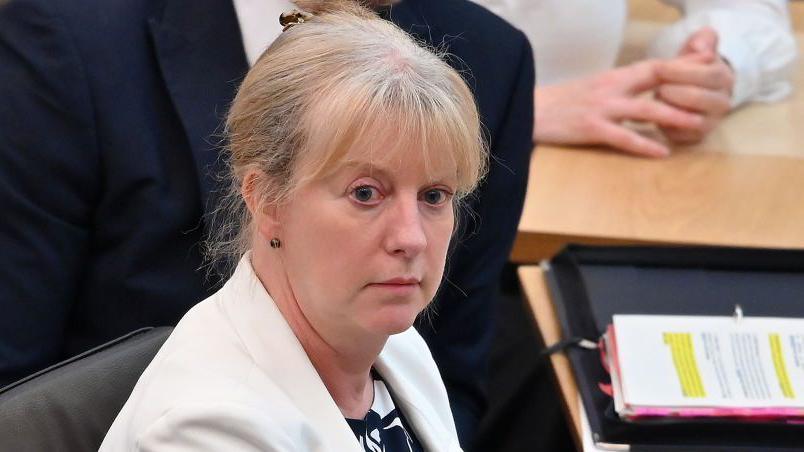Will spending cuts end Scotland's 'free for all' policies?

Will the winter fuel payment start a trend towards targeted benefits rather than universal entitlements?
- Published
Around 900,000 fewer pensioners will receive winter fuel payments after the Scottish government confirmed means testing will be used to target the benefit in future.
It's the subject of an early row between the SNP administration and their new Labour counterparts at Westminster, who cut eligibility for the UK-wide version of the payment.
But it's also an example of the collision of two larger forces in Scottish politics, which are moving in opposite directions - the expansion of social security programmes and universal entitlements, and mounting pressure on public finances which have forced ministers to impose emergency spending controls.
The clash between the Scottish government’s instinct towards big state interventions and the new UK government’s drive for fiscal responsibility could come to characterise the coming years, and the buildup to the 2026 Holyrood election.
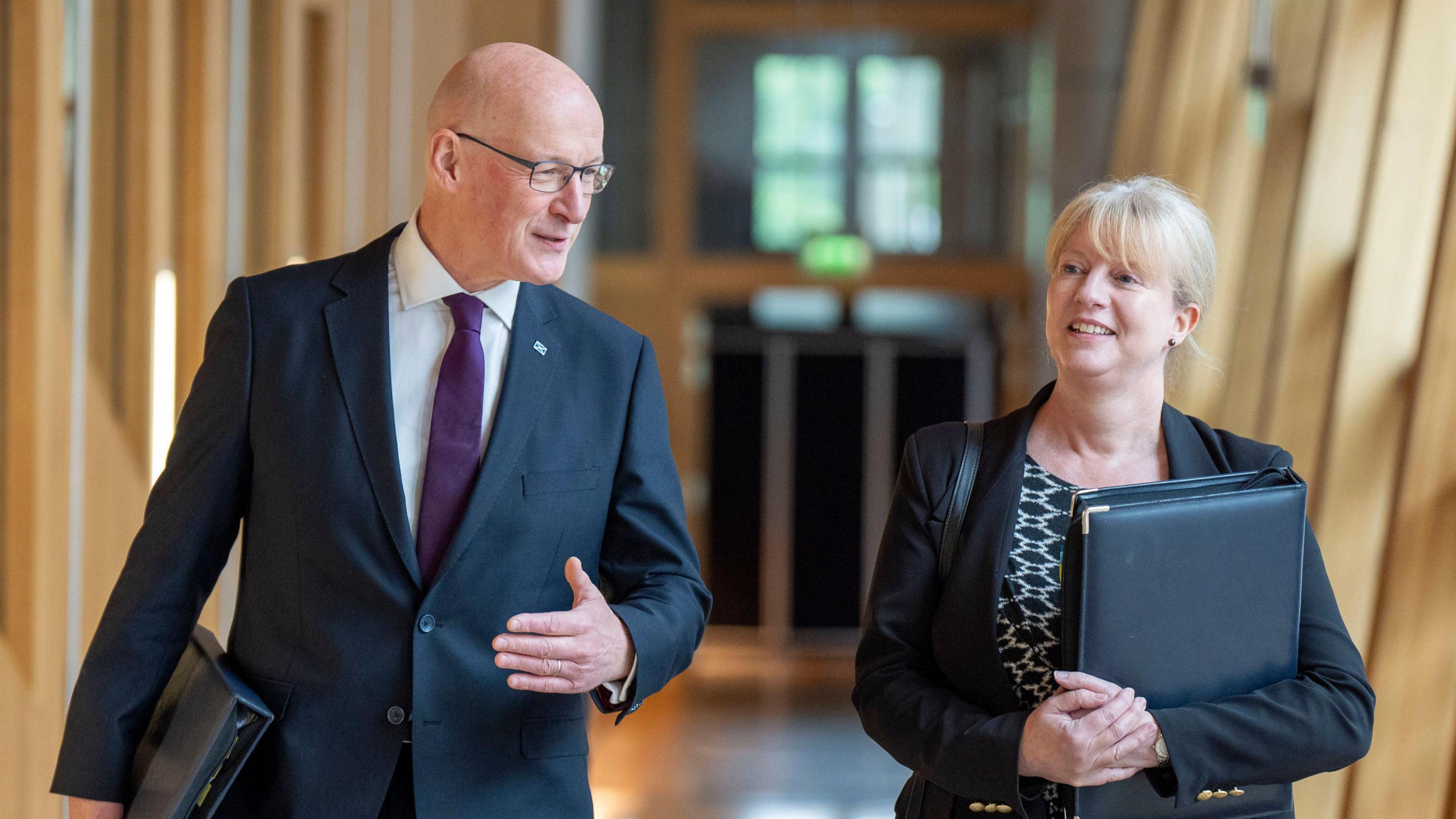
John Swinney and Shona Robison have imposed emergency spending controls
The winter fuel payment was introduced by the incoming Labour government in 1997 - a grant of up to £300 for every pensioner to help heat their homes in colder months.
It is being scaled back by another incoming Labour government, and will only be available to those in receipt of means-tested benefits like pension credit.
The argument is that when resources are scarce, it’s better to target welfare programmes at those most in need rather than writing cheques for all.
The complicating factor in Scotland is that the benefit is being devolved - it was weeks away from being replaced by the Pension Age Winter Heating Payment, administered by Social Security Scotland.
The cut to the UK benefit means there will be less funding available.
The block grant from Westminster would only cover a system identical to that available to pensioners down south.
If Scottish ministers want to run a more generous system, for all pensioners, they have to find funding in the region of £160m elsewhere in an already-stretched budget.
Thus, devolution has been delayed for a year, and ministers have already accepted that the new benefit will be means tested.
They have laid the blame for this at the door of the UK government, saying they had “no choice” but to restrict the benefit after its budget was cut by 90%.
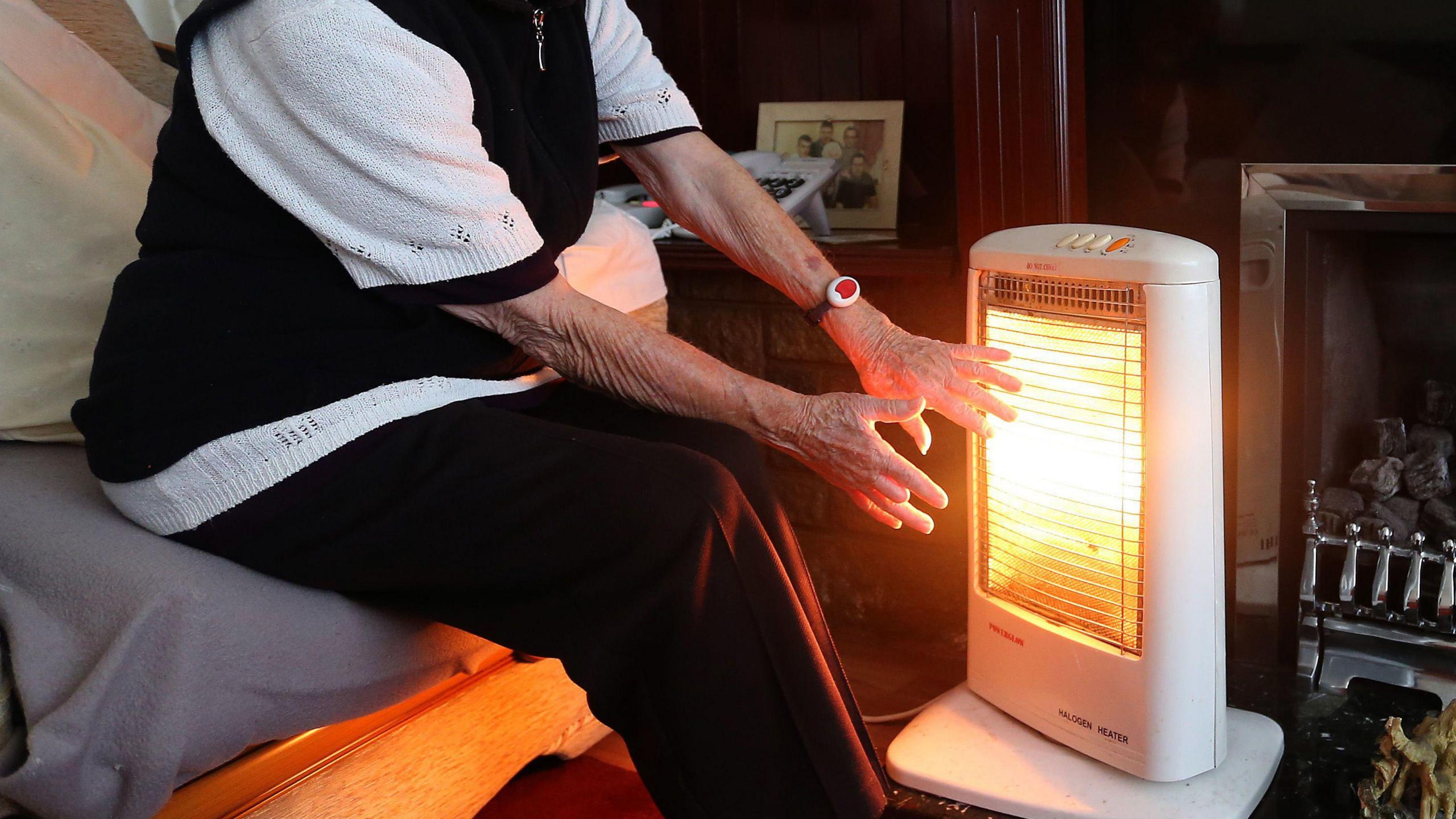
Scottish ministers say they still want fuel payments to be as broad as possible
There was some debate, while PAWHP was being designed, about whether it should be paid to all pensioners.
The government's advisors in the Poverty and Inequality Commission, external said a universal payment would be “extraordinarily poorly targeted as regards to addressing poverty”, and would result in “inefficient spend”.
But ministers were insistent that a broad approach was the best way to ensure take-up of benefits among those most in need, and would offer greater security and certainty.
Even after the UK announcement was made, public finance minister Ivan McKee argued that the extra administration needed to means test the benefit could offset any savings.
And this week, Economy Secretary Kate Forbes said both she and John Swinney had lobbied UK government counterparts for funding to maintain the benefit for all.
But with Chancellor Rachel Reeves cutting her cloth, that seems a distant prospect.
And going forward, it's equally unlikely there will be a “spare” £160m kicking around in the budget - likely more than that, as the pension-age population swells - to expand the benefit.
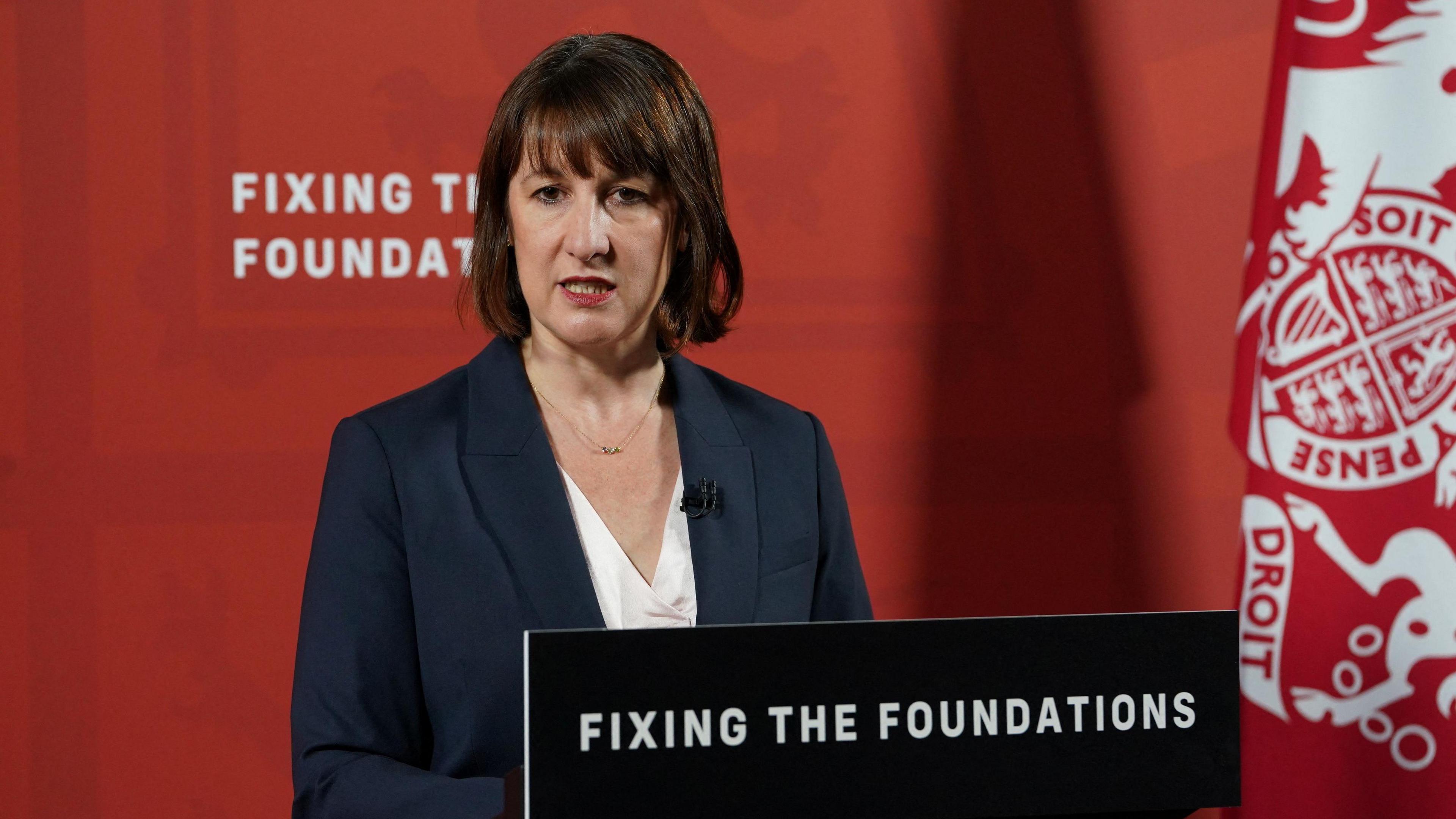
Rachel Reeves says she also has no choice but to constrain spending
So what does this mean in the bigger picture?
For a long time, the Scottish government’s instinct has been towards universal entitlements.
Free university tuition, free prescriptions, free childcare, the baby box - all policies the SNP highlights at every conference and election.
Discounted rail fares for all is a more recent example, while free bus travel has been expanded to include all under-22s as well as those over 60.
Free school meals are in the process of being rolled out to all primary pupils, rather than just those on low incomes.
Indeed the government is still running studies about the idea of a minimum income guarantee - an ambitious plan for a universal safety net.
But that ambition looks increasingly difficult to afford.
The government’s last medium-term financial strategy, external paper - which warned of a £1bn funding gap - said ministers would “unapologetically direct our resources to those in greatest need” and “review opportunities for more effective targeting of existing provision and services”.

Prescription charges were abolished by the Scottish government in 2011
Social security is perhaps the most striking example of Scottish ministers using their powers to create a notably different system.
New measures like the Scottish Child Payment have been set up, and other benefits have been uprated more generously than their UK equivalents.
That has won acclaim from poverty campaigners, but it comes at a cost.
Holyrood receives a block grant in line with benefit provision south of the border, and ministers have to find money elsewhere in the budget to fund any extras.
This year, devolved social security spending was forecast at £6.3bn, against a block grant transfer of £5.2bn - so Scottish ministers have to find £1.1bn from elsewhere in the budget.
By 2028-29 it’s projected the devolved welfare spend will hit £8bn, external, against a block grant of £6.5bn - a difference of £1.5bn.
Some of that gap is being plugged with tax rises - the devolved income tax rate being another major development of devolution post-indyref.
But finding such sums still requires “prioritisation” in other areas of the budget, which is also being hammered by pressures like public sector pay.
That's another area where ministers have been willing to take a more generous approach in recent years, but which carries a serious recurring cost. It accounts for roughly half of the Scottish budget.

Free school meals are being rolled out to all primary pupils
These are all ultimately political choices. Many were based on principle, but it undoubtedly also played well for the SNP to contrast its approach with that of a Conservative UK government.
And for all the talk of a new relationship, they may find themselves at odds with the new Labour administration too.
The new Work and Pensions secretary, Liz Kendall, said her mission was to “get Britain working again” during her first Commons appearance.
That sits alongside the Chancellor’s focus on economic growth, and her pledge not to increase personal taxation or borrow to fund daily expenses.
It feels like there is little appetite to grow the size of the state or make grand social interventions - something the Conservatives ultimately only did under the duress of a pandemic and a fuel crisis.
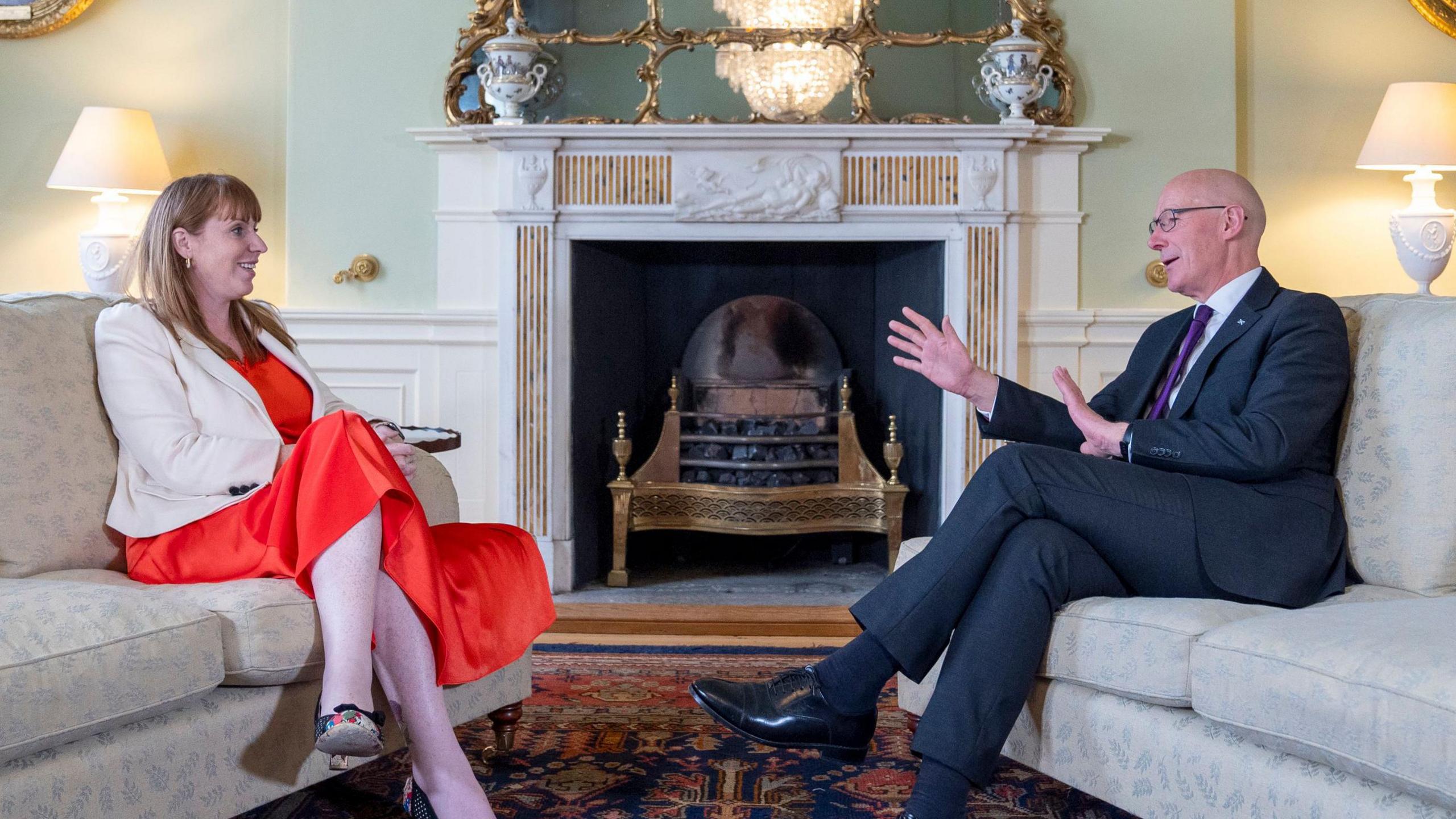
Will relations between the governments improve with Labour now in power?
And yet in Scotland there has been little real debate about government generosity, perhaps simply because it’s politically hard to argue against when there is an election every other year.
The only question about the Scottish Child Payment has been how high a level it should be set at. Nary an MSP is arguing against public sector pay settlements, and there has been no campaign to bring back peak-time rail fares.
See also free prescriptions and university tuition. Some academics may have questioned the outcomes, in terms of limiting funded places for Scottish students, but no party has been so bold as to come out against it.
But given how prominent fiscal worries are now, there might be more of an argument about what can and cannot be afforded as parties recalibrate themselves to the new political reality post-general election.
There may be more room for it too, if the constitution ends up playing a less central role in this new era.
The Scottish Conservatives are electing a new leader, and the candidates have all made clear they don’t just want to talk about their opposition to independence. One, Russell Findlay, is already talking about challenging the "unsustainable" social security bill.
Labour is talking up the 2026 Holyrood election as a referendum not on the union, but on the SNP’s record in government - which will have stretched for 19 years by then.
John Swinney has hinted that the SNP is rethinking its approach to persuading Scots of the benefits of independence, having just lost 39 Westminster seats with it on page one of their manifesto.
We will get a sense of this very soon, when the first minister sets out his first Programme for Government at Holyrood.
It’s a chance to reset the SNP’s direction following a very dark election night, but it’s also going to set the scene for a long run-in to the 2026 election.
And given his party increasingly sees Labour as its key electoral rival, it could also shape how his administration interacts with the new UK government - particularly when it comes to funding.
Related topics
- Published14 August 2024
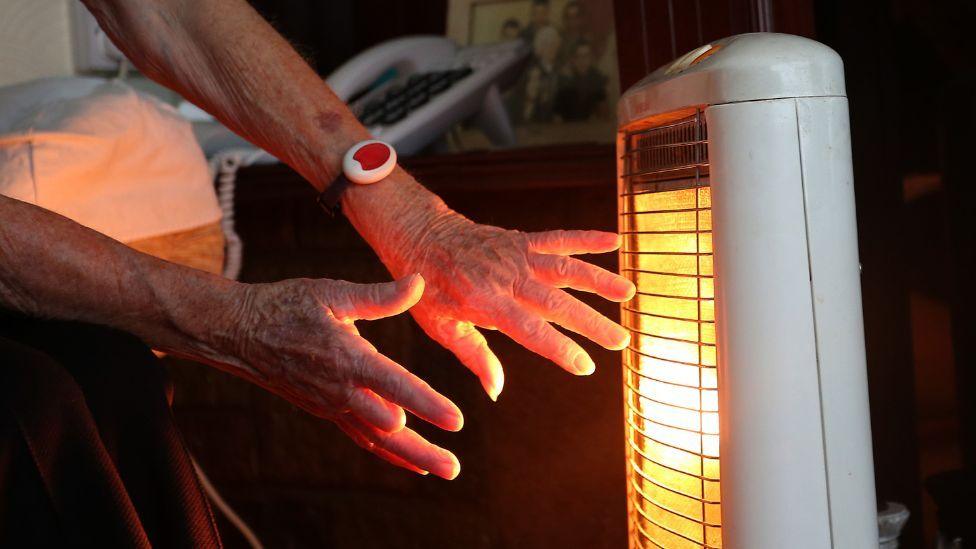
- Published15 August 2024
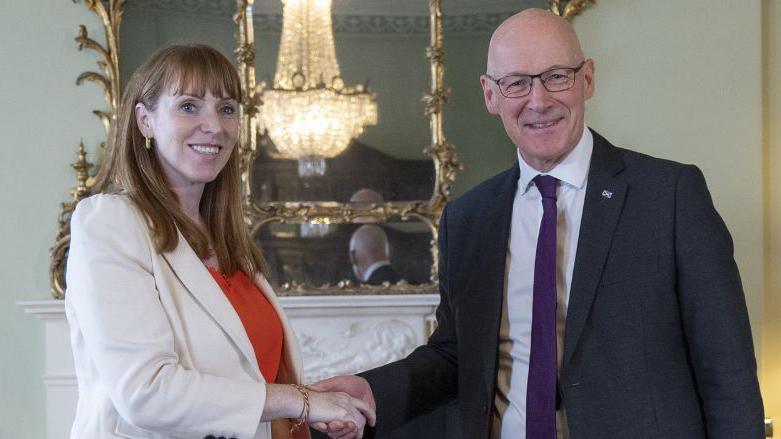
- Published14 August 2024
